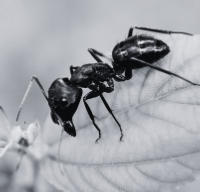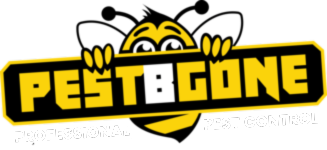Pestbgone Limited
The Mews, Hounds Road,
Chipping Sodbury, Bristol GL8 8UL
Buckinghamshire -
Office: 01628 473062
Onsite: 07728 314363
South Gloucestershire -
Office: 07585 124939
Onsite: 07585 124939
Our Services
Registered in England and Wales.
Company No: 13370531
VAT No: 364671477
Registered Address: The Mews, Hounds Road, Chipping Sodbury, Bristol, South Gloucestershire GL8 8UL
All Rights Reserved © 2025 Pestbgone Ltd






Our Services
Black Ants
Black Ants (also known as Garden Ants) are very common and are mostly harmless, although they can be a nuisance if they come into houses. Ants are useful garden insects, collecting nectar and seeds from flowers and also small dead insects, all of which are taken back to the nest to feed the larvae.
Life Cycle: The life cycle starts with a fertile queen digging into the ground to make a small cell in which she lays eggs. These hatch in about 3-
They will leave the nest, sometimes in large enough numbers to make a noticeable swarm and will mate while flying. All the male ants and many of the female queens will die fairly quickly, but the queens which survive will set up new nests. The nest is most likely to be outside the house, particularly in sandy soil, or in the sand bed laid beneath garden paving slabs or around the foundations of houses. Ants move indoors to feed or emerge through cracks at skirting board or ground level.
Feeding: Ants are attracted to sweet foods -
Ants that have been successful at finding food, particularly sweet foods, can communicate this to other ants, and if the source of food is in a kitchen this will result in large numbers of ants forming a trail to the food. Although unpleasant, black ants do not transmit diseases.
Control: If houses are infested by ants there are 3 steps to controlling the infestation:
1/ Any obvious defects in the building should be repaired with mastic or cement mortar -
2/ Any sources of sweet food in the kitchen should be covered or cleaned away -
3/ A pesticide spray treatment can be very effective, particularly if it has a residual effect which will last for a few weeks. Professional pest control operators have access to effective insecticides and the professional sprayers and dust guns to apply them. Although there are many aerosol sprays and gels available from DIY shops, these may not have the penetration or residual effect that can be obtained with professional sprayers.
Black Ants Treatments
1/ Our service is to attend and carry out a thorough inspection of your home for Black Ants and to treat affected rooms if it is safe to do so. Please note that this may not result in eradication of the insects. You do not normally need to leave the property during the treatment as we will be applying specialised gel products.
2/ This is a single visit treatment and the products used remain active for many weeks. If the infestation is severe or if our technician so determines, we may supplement this by applying an insecticidal spray, in which case you may need to vacate the property until this dries, which is normally around 2 hours. Our technician will advise you if this is necessary.
3/ We are only permitted to apply insecticides if the pest is confirmed as present, and in rare cases where there are no obvious signs we may instead need lay monitor traps and return to check these to confirm if an infestation is present. The fee for this work is the same as for treatment.
4/ We appreciate how unpleasant a Black ant problem is and that now that you have contacted us, you will be anxious to have your home treated as soon as possible. There is no preparation you need to do before our arrival.
5/ Any baiting points, equipment and or monitor stations must be left undisturbed. Large reductions in ant numbers are usually noted within days and treatments usually take 14 days, although it may take longer.
WikiPest
Everything you need to know about
Black Ants

We’re here to help -
Buckinghamshire & South East
South Gloucestershire & South West
